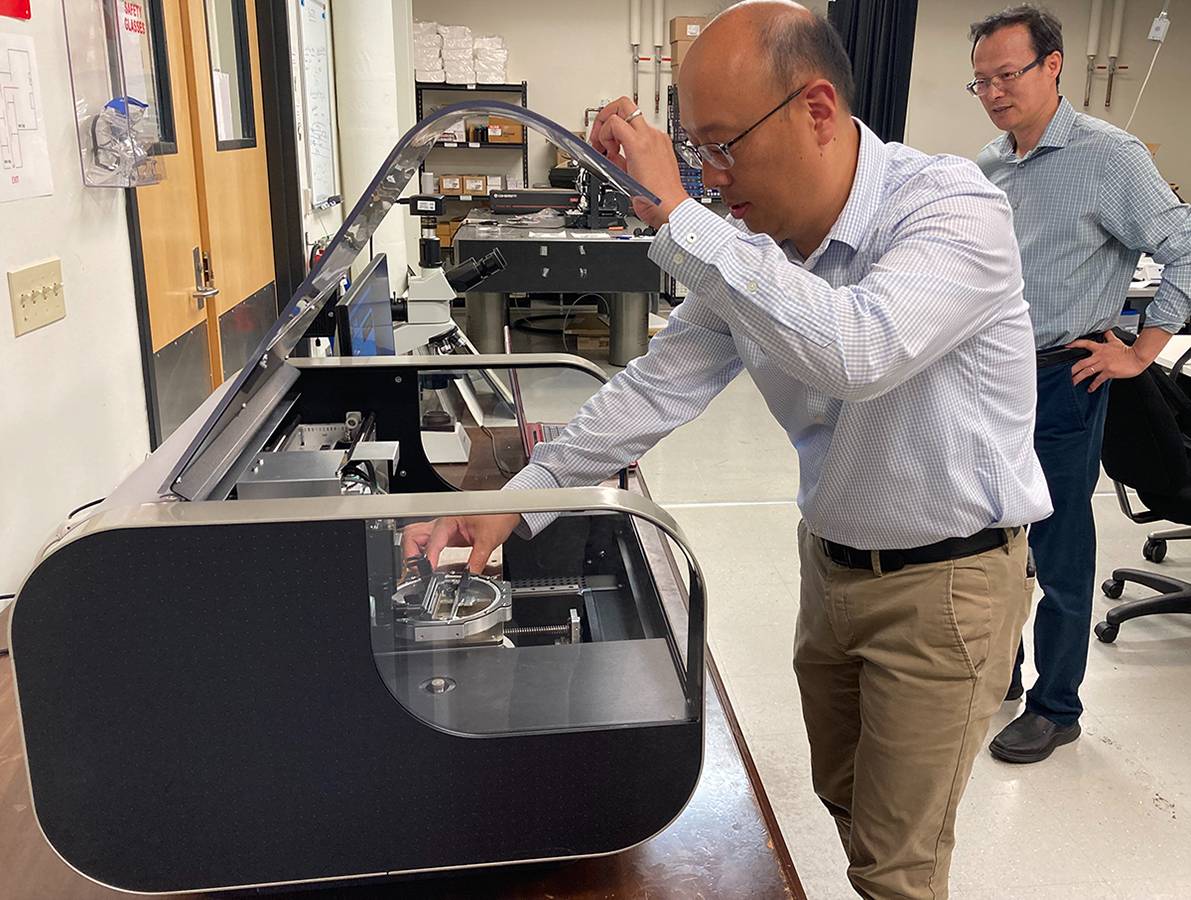A research team led by researchers with Wichita State’s College of Engineering and Fairmount College of Liberal Arts and Sciences recently received funding from the National Institutes of Health (NIH) for their proposal, "The Development of a Smart Telehealth ECG and Human Activity Monitoring System to Improve Cardiovascular health of Older Adults."
The project, which also includes Dr. Jung Sim Jun, Kansas State University social work associate professor, Dr. Bassem M. Chehab, a cardiology specialist at Cardiovascular Consultants of Kansas, and Bryan Hahlbeck, state, local government and higher education client executive, is supported by NIH Academic Research Enhancement Award (AREA). The goal of the research is to help expand the role of telehealth for cardiovascular care in older adults.
“Telehealth can play an important role in cardiovascular health care for older adults due to its potential for high-quality, cost-effective patient care and improving health literacy,” said Dr. Yongkuk Lee, Department of Biomedical Engineering assistant professor and principal investigator for the project. “However, barriers still exist that hinder the large-scale adoption of telehealth.”
Yongkuk Lee says this is primarily because for the device to be successful, it is essential to develop low-cost, reliable, noninvasive wearable devices for long-term continuous health monitoring. Previous telehealth platforms relying only on virtual consultations or mobile applications have shown limited ability to provide proper diagnosis and treatment.
“While a few studies have explored traditional wearable sensors as an example of a portable telehealth system, they are often not suitable for long-term use due to interface failure or significant visual and body discomfort, which has resulted in a dramatic loss in the devices’ performance in the real world,” said Yongkuk Lee.
Along with the longevity of the devices, Yongkuk Lee says, there are other factors that have limited this type of device and that the goal of the study is to resolve them.
- The real-time automated analysis of physiological data is required to enable reliable clinical decision-making in a timely manner.
- There is a lack of understanding of the needs, perceptions and preferences of patients for telehealth and long-term wearable health monitoring devices.
- Education and training for telehealth acceptance, knowledge and use of wearable health monitoring devices are needed to improve the utilization of telehealth and devices.
Dr. Kyoung Hag Lee, School of Social Work professor and a member of the research team, also sees his team’s proposed device as helping older adults more effectively than past attempts.
“I believe that the use of smart wearable devices will be an efficient way to increase the health care accessibility for older adults in rural areas and will alleviate health disparity issues between urban and rural areas, especially since there is a lack of physicians and health care providers in the rural areas of Kansas,” Kyoung Hag Lee said.
To aid with the success of the program, Yongkuk Lee will develop an inkjet-printed wireless, wearable for reliable ECG and human activity monitoring. The proposed device will be made of integrating soft and hard materials including inkjet-printed flexible circuits and stretchable electrodes and offer conformal contact on the skin without any adhesive. As a result, reliable and accurate ECG and activity monitoring will be possible during normal activities.
To gauge the literacy of the technology for potential wearers of the device, Kyoung Hag Lee and Jun will develop a survey questionnaire and interview questions. They will then work with older adults in local assisted living facilities to understand telehealth literacy and perceptions of the older adult population.
Yongkuk Lee said the team is also working with a team from NetApp, including Hahlbeck. NetApp is a cloud data services and data management company with its Wichita headquarters on WSU’s Innovation Campus. NetApp is helping the research demonstrate smart features of the system such as transmission/storage of ECG and human activity data in a cloud server to aide in the retrieval of participant’s data on a clinical site. Lastly, Chehab, a cardiologist, will help the team to design and validate the clinical feasibility of the proposed device.
The three-year project should be completed in July 2025. Yongkuk Lee says the team will eventually recruit one Ph.D. student, one MS student, and four to six undergraduate students to complete the project.


